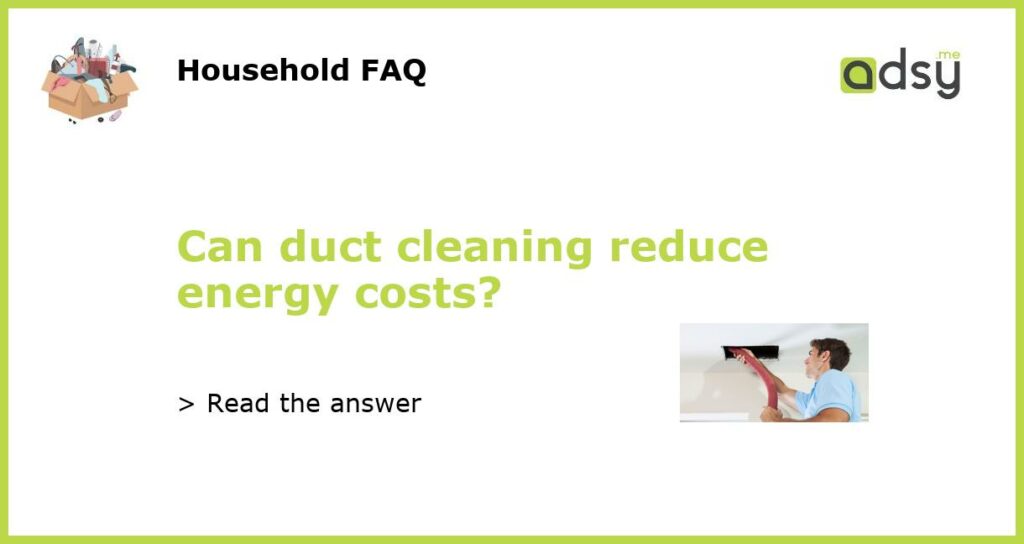Understanding the Relationship between Duct Cleaning and Energy Costs
When it comes to reducing energy costs, many homeowners are always on the lookout for effective solutions. One potential solution that often comes up in discussions is duct cleaning. But can duct cleaning really reduce energy costs? Let’s examine the relationship between duct cleaning and energy costs to find out.
How Ducts Affect Energy Efficiency
Ducts are an integral part of your HVAC (Heating, Ventilation, and Air Conditioning) system. They are responsible for distributing heated or cooled air throughout your home. Over time, however, these ducts can accumulate dust, debris, and other contaminants. This can significantly impact the efficiency of your HVAC system.
When ducts are dirty or clogged, it forces your HVAC system to work harder to achieve the desired temperature. This results in increased energy consumption, which directly affects your energy costs. Additionally, dirty ducts can also lead to poor indoor air quality and potential health issues.
The Benefits of Duct Cleaning
Regular duct cleaning can offer several benefits, including potential energy cost savings. By removing dust and debris from your ducts, your HVAC system can operate at its optimal efficiency. This means your system doesn’t have to work as hard to maintain the desired temperature, resulting in reduced energy consumption and lower energy costs.
Duct cleaning can also improve the air quality in your home. Dust and debris in your ducts can get circulated throughout your living spaces, potentially aggravating allergies or respiratory conditions. Removing these contaminants through duct cleaning can help create a healthier indoor environment for you and your family.
Factors to Consider
While duct cleaning can be beneficial for energy efficiency and lowering energy costs, there are a few factors to consider:
1. Age and condition of ducts: If your ducts are relatively new and in good condition, the impact of duct cleaning on energy costs may be minimal. However, if your ducts are older or have significant buildup, cleaning them can make a noticeable difference.
2. Frequency of duct cleaning: How often you should have your ducts cleaned depends on various factors, such as the HVAC system usage, the presence of pets or smokers in your home, and the overall air quality. It is generally recommended to have your ducts professionally cleaned every 3-5 years.
3. Professional duct cleaning: It is important to hire a reputable and experienced professional for duct cleaning. Improper cleaning techniques or equipment can potentially damage your ducts or lead to incomplete cleaning, negating any potential energy cost savings.
Additional Energy-Saving Measures
Duct cleaning can be a part of an overall strategy to reduce energy costs. Here are some additional energy-saving measures you can consider:
1. Regular HVAC maintenance: Schedule regular maintenance for your HVAC system to ensure it operates efficiently. This includes changing filters, cleaning coils, and checking for any duct leaks.
2. Proper insulation: Ensure your home is properly insulated to minimize heat loss or gain. This will reduce the workload on your HVAC system and lower energy costs.
3. Programmable thermostats: Install programmable thermostats to optimize temperature settings based on your schedule. This prevents unnecessary energy usage when you are away from home.
By combining these measures with regular duct cleaning, you can create a more energy-efficient home and potentially save on energy costs.

